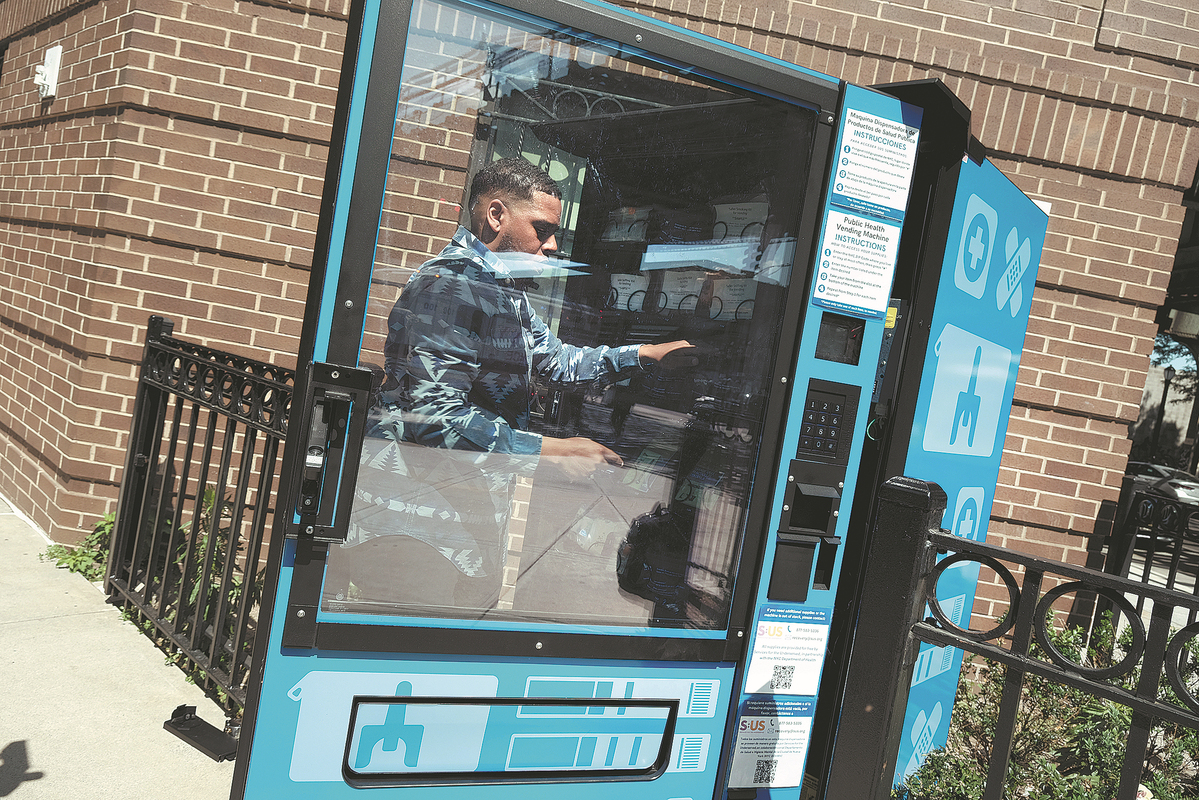Fentanyl crisis casts long shadow over the US


Chronic escalation
In recent decades, the US government has addressed the issue of drug overdoses, but many missteps were made in the years before fentanyl hit the streets.
The first US opioid overdose wave stemmed from increased prescriptions of oxycodone and other prescription opioids in the 1990s. Overdose deaths involved such opioids, with US drug manufacturers, distributors and chain pharmacies making billions in profits.
Patient privacy laws and a lack of coordination among states in the US have allowed individuals to collect numerous opioid prescriptions. They then sell the excess pills.
The second wave began in 2010, with rapid rises in the number of deaths from overdoses of heroin. As the government cracked down on prescription opioids, some opioid users switched to heroin because it was easier to obtain.
In about 2013, the third wave started, with heroin dealers wanting to increase profits by mixing their products with fentanyl. At that time, federal authorities still considered fentanyl within the larger opioid crisis context, rather than acknowledging it as a separate threat that required a focused approach.
A report in The Washington Post last year revealed additional oversights by previous US administrations. For instance, the Arrestee Drug Abuse Monitoring Program that collected urine samples from recent offenders was halted in 2013 due to budgetary constraints.
Similarly, the Drug Abuse Warning Network, which compiled drug use and overdose information from medical facilities and emergency responders, was terminated in 2011.Although a version of the program was reintroduced in 2018, by then the fentanyl crisis had emerged.
Keith Humphreys, who served as a drug policy adviser to the George W. Bush and Barack Obama administrations, told The Washington Post: "These programs, as imperfect as they were, at least gave us something. And they were defunded."
Elissa Tierney, who leads canvassing efforts for the Not One More campaign, which unites grassroots efforts for drug crisis action and support, said: "The war on drugs has been going on for 50 years, and the overdose crisis is not getting better; it's getting worse. I think it's because politicians and people in authority are not listening to their recovery communities."
Former president Donald Trump took office on the cusp of the impending fentanyl crisis.
While Trump committed to building a wall along the US-Mexico border to halt drug trafficking, fentanyl was finding its way into the US primarily through ports of entry.
The New York Times reported that the administration was considering a potential elimination of the entire White House Office of National Drug Control Policy. That office, led by a "drug czar", had been used to lead the war on drugs.
In May 2017, the Trump administration was considering cutting 96 percent of the drug czar's office budget. In addition, Trump did not nominate the head of the office, Tom Marino, until nine months into his presidency.
Marino's nomination was swiftly withdrawn following a report by The Washington Post, which revealed that he had supported a bill that increased the challenges for the DEA to enforce federal law against drug manufacturers, distributors and pharmacies that were found in violation.
Tierney said: "Decade after decade, we see the same thing happen. They crack down on a drug, and then a deadlier drug comes right after that. It started with heroin. They started to criminalize heroin. Fentanyl came, and they started to criminalize fentanyl. … Every time they crack down on a drug, a deadlier drug is around the corner."
Sherri Walker Hobson, a former federal prosecutor and once an assistant US attorney in San Diego, California, has headed a fentanyl working group since 2017. The team tracks increasing seizures of the drug near a port in San Diego.
Hobson told The Washington Post last year: "They said they found that lethal fentanyl doses were coming from Mexican cartels, not China. There was so much focus on China, they didn't look at where the ball was. They weren't looking at the cartels in a serious way. It was all about China, China, China."
Until now, the US has not officially scheduled fentanyl-related substances as a class. Fentanyl analogues are temporarily controlled in the US, with the classification set to expire in December next year.
Meanwhile, Chinese Foreign Ministry spokeswoman Mao Ning has said China categorized and controlled fentanyl substances, and the controlled varieties far exceeded the scope of the International Drug Control Conventions, making China the first country to categorize and control such substances.
The permanent mission of China to the UN said on Sept 18 that China is opposed to any form of legalization of drugs and politicization of drug issues. "By far, China is the first and only country to officially schedule fentanyl substances as a class," the mission said.


















